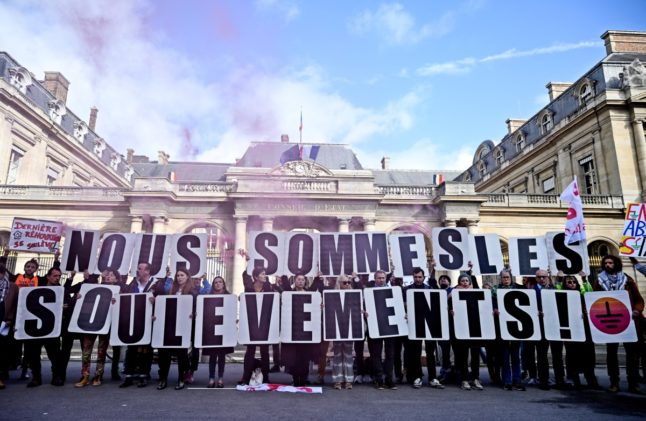An estimated 6,000 protesters took part in the March 25th demonstration over plans to build one of a series of new reservoirs near Sainte-Soline in western France.
The protest quickly turned into pitched battles with the around 3,000 police officers deployed to defend the site.
Two protesters spent several weeks in a coma, while around 30 officers were injured. Rights groups accused the police of excessive force.
President Emmanuel Macron’s government later shut down the Soulèvements de la Terre (Uprisings of the Earth) coalition, which was behind the protests, saying it incited violence by encouraging demonstrators to come equipped with metal bars and pétanque balls.
But the Conseil d’Etat (State Council) ruling on an appeal brought by SLT, struck out the June dissolution.
The council, which rules on the legality of decisions taken by the government and public bodies, ruled that “no incitement to violence against people could be blamed on Uprisings of the Earth”.
While adding that the group had engaged in “provocations and violence involving property”, it said the decision by Interior Minister Gerald Darmanin to ban SLT was not “suitable, necessary or proportional to the gravity of the disruption likely to be caused to public order”.
SLT is part of a new wave of more radical climate activist groups, including Extinction Rebellion, that say direct action is needed in response to insufficient efforts to combat climate change.
The Council said the decision to shut down a group or association was an infringement of the freedom of association.
Such a move was only justified if the group incited violence against people or property, sought to excuse violent actions or failed to moderate incitement to violence on social networks, it said.
SLT welcomed its unbanning on X, formerly Twitter, telling Darmanin to “take that!”.
The Council did however uphold the minister’s decision to use new powers to outlaw three other groups: one from the far right, one from the far left and another accused of spreading hatred in the name of fighting anti-Muslim sentiment.



 Please whitelist us to continue reading.
Please whitelist us to continue reading.
Member comments